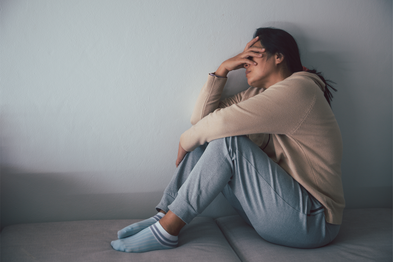Discover a Happier You with Depression Counseling
Life can be a rollercoaster of emotions, and it's normal to feel down or sad from time to time. However, when these feelings persist, impacting your daily life and well-being, it's crucial to seek support. My depression counseling services are designed to guide you towards a brighter, more fulfilling life.
Life can be a rollercoaster of emotions, and it's normal to feel down or sad from time to time. However, when these feelings persist, impacting your daily life and well-being, it's crucial to seek support. My depression counseling services are designed to guide you towards a brighter, more fulfilling life.
- Persistent Sadness: If feelings of sadness linger, affecting your daily activities and relationships.
- Sleep and Appetite Changes: Notice disruptions in your sleep patterns or appetite.
- Fatigue and Low Energy: Feel constantly tired, lacking the motivation to engage in daily tasks.
- Difficulty Concentrating: Struggle to focus and find it challenging to concentrate.
- Recurring Thoughts: Suicidal thoughts or self-harming tendencies— if you are self-harming, or plan to bring harm to yourself or others, immediately call 9-1-1 or 1-800-273-8255.
If this sounds like you, you may benefit from depression counseling!
Is Depression Lifelong?
Contrary to common misconceptions, depression isn't always a lifelong sentence. Whether you're dealing with a chronic form like Persistent Depressive Disorder or facing acute episodes, depression counseling is your pathway to managing symptoms and rediscovering balance.
Contrary to common misconceptions, depression isn't always a lifelong sentence. Whether you're dealing with a chronic form like Persistent Depressive Disorder or facing acute episodes, depression counseling is your pathway to managing symptoms and rediscovering balance.
My Approach:
🎯 Tailored Treatment: Together, we'll create a personalized treatment plan to address your unique needs.
🧘 Mindfulness and CBT: Learn effective coping techniques through Mindfulness and Cognitive Behavioral Therapy (CBT).
💊 Medication Options: Explore medication options if necessary, with referrals to trusted prescribers in the greater Dayton-WPAFB area.
🎯 Tailored Treatment: Together, we'll create a personalized treatment plan to address your unique needs.
🧘 Mindfulness and CBT: Learn effective coping techniques through Mindfulness and Cognitive Behavioral Therapy (CBT).
💊 Medication Options: Explore medication options if necessary, with referrals to trusted prescribers in the greater Dayton-WPAFB area.
Take the First Step Towards a Brighter Tomorrow
Depression counseling at Turning Inward LLC is your partner in managing and reducing symptoms, offering a path to a more balanced and satisfying life. Reach out today to begin your journey towards a happier, healthier you!
Depression counseling at Turning Inward LLC is your partner in managing and reducing symptoms, offering a path to a more balanced and satisfying life. Reach out today to begin your journey towards a happier, healthier you!
Copyright ©️2024 Turning Inward LLC


